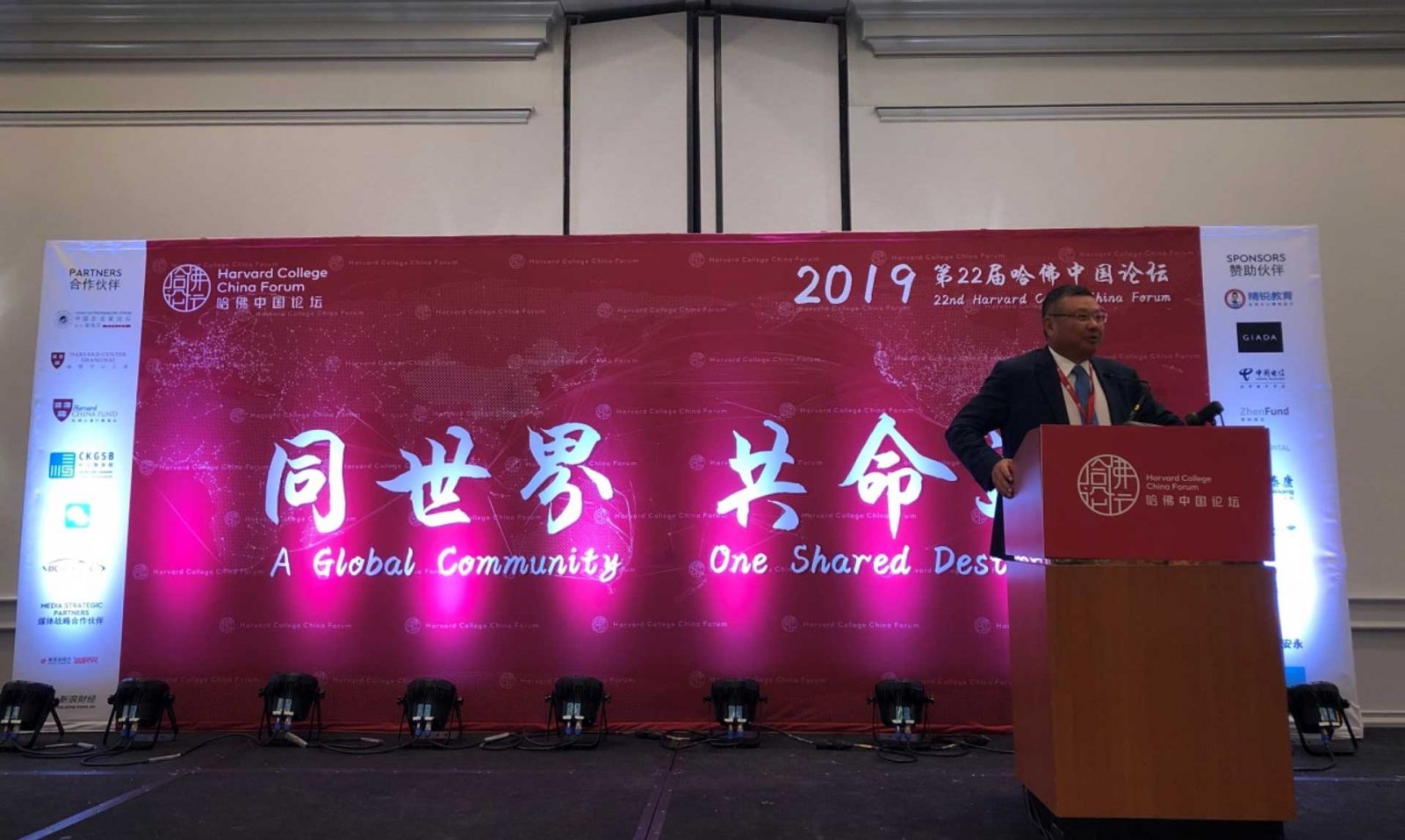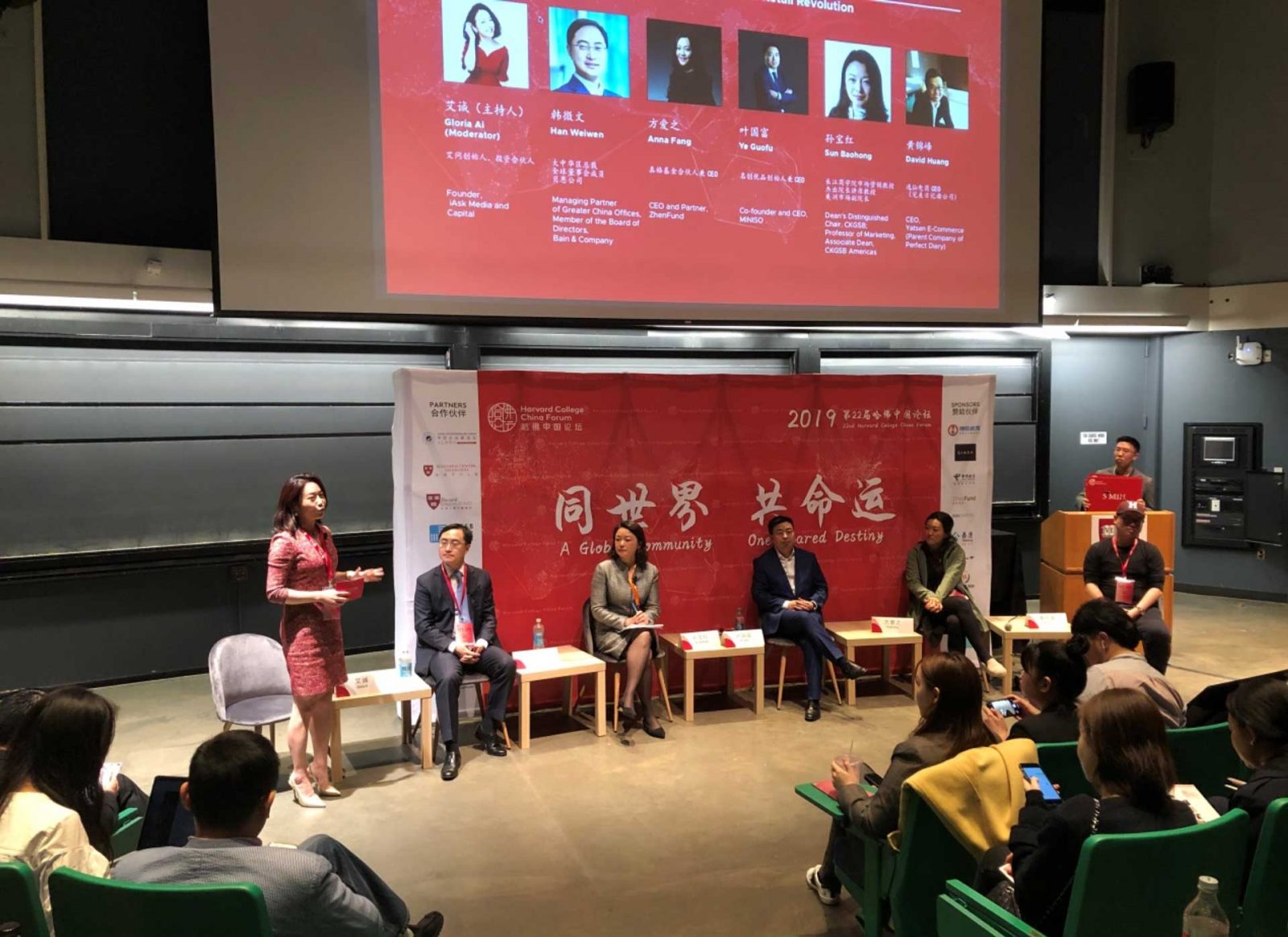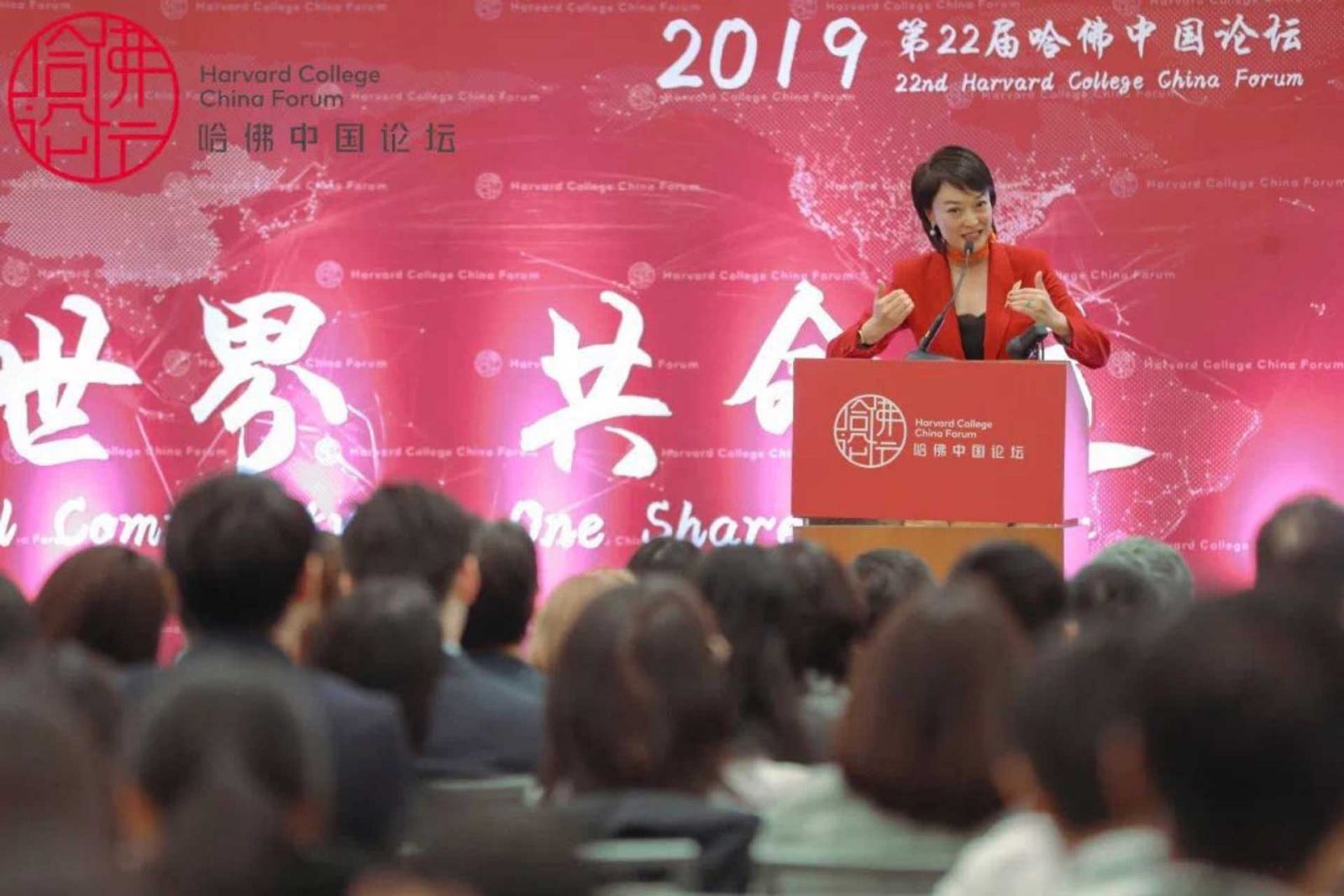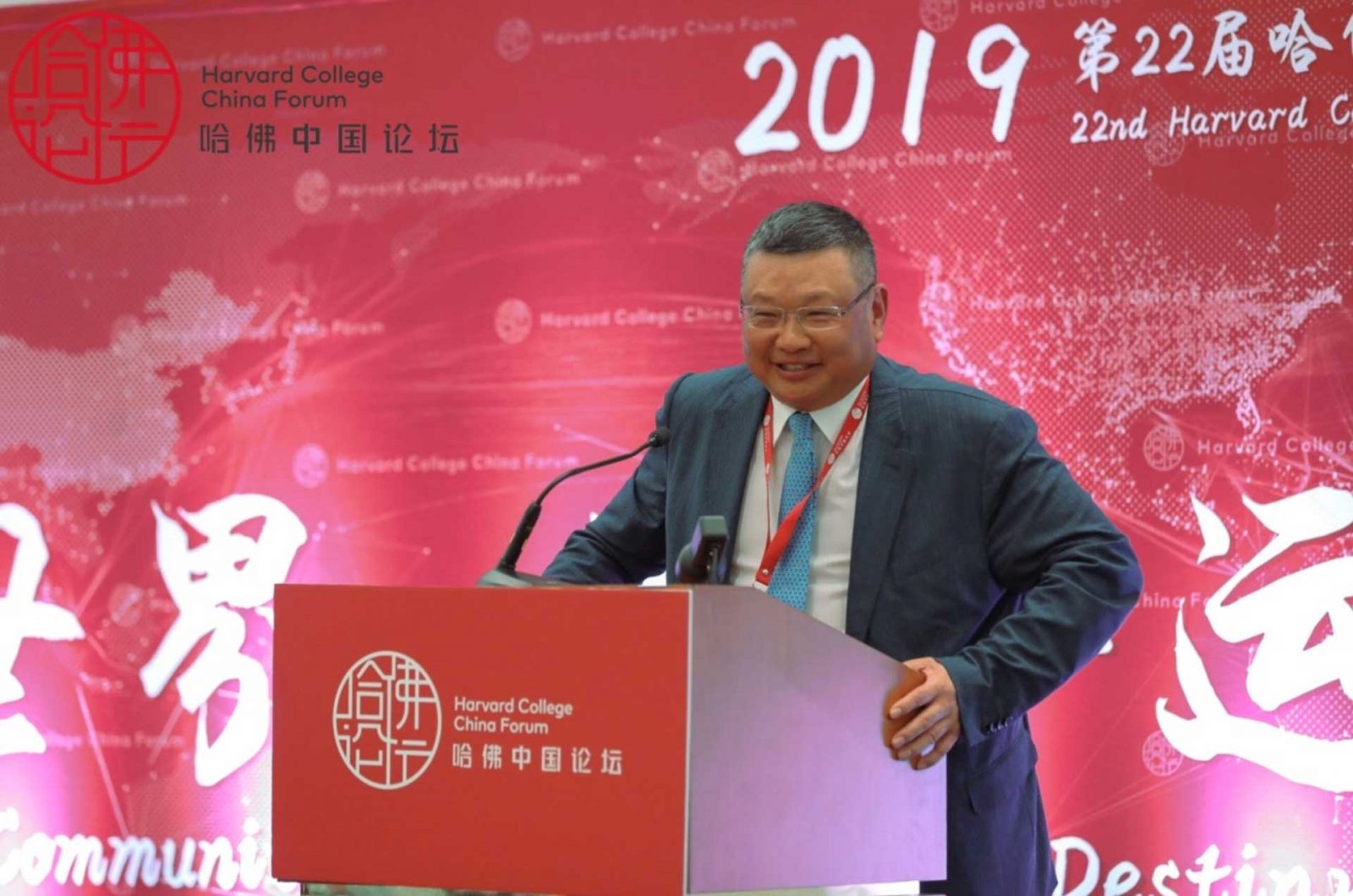As a key partner to the Forum, CKGSB delivered a strong voice from China through eight speakers, including CKGSB Founding Dean and alumni who run top companies in China

CKGSB Founding Dean and Professor of China Business and Globalization Xiang Bing delivering his keynote speech at the Harvard China Forum, to which CKGSB was an important partner
[Cambridge, Massachusetts, 13 April 2019] As the US-China trade negotiations loom between Beijing and Washington, another kind of dialogue took place in Cambridge, Massachusetts. Every year, the Harvard College China Forum convenes the most influential business leaders, policy shapers and leading scholars to address current trends and events related to China’s development. This year, China’s leading and only independent business school, Cheung Kong Graduate School of Business (CKGSB) played a key role in the conference and was again the only educational partner to this year’s Harvard China Forum, titled “A Global Community, One Shared Destiny.” This was CKGSB’s third year of involvement in this high-level conference and also the most significant as such. CKGSB brought a group of eight professors and leading alumni, representing top businesses in China, who shed light on China’s economic outlook and business landscape, including a keynote speech by CKGSB’s Founding Dean Xiang Bing to more than 2,000 delegates at the Forum.

Speakers of the consumer panel at the 2019 Harvard China Forum (left to right): CKGSB Alumna and Founder of iAsk Media and Capital Gloria Ai; Bain & Company Managing Partner for Greater China and Member of the Board Han Weiwen; CKGSB Dean’s Distinguished Chair Professor of Marketing and Associate Dean Sun Baohong; MINISO Co-founder and CEO Ye Guofu; ZhenFund CEO and Partner Anna Fang; Yatsen E-Commerce CEO David Huang
CKGSB Dean’s Distinguished Chair Professor of Marketing and Associate Dean Sun Baohong spoke on China’s ever-growing consumer market and new retail trends on a panel discussion moderated by CKGSB alumna Founder of iAsk Media and Capital Gloria Ai, and joined by distinguished panelists such as MINISO Co-founder and CEO Ye Guofu; ZhenFund CEO and Partner Anna Fang; Bain & Company Managing Partner for Greater China and Member of the Board Han Weiwen. Also speaking at this year’s Harvard China Forum were CKGSB DBA student Vice President and CMO of IBM Greater China Gill Zhou, who delivered a keynote speech on AI trends; as well as EMBA alumnus and Chairman/CEO of Perfect World Lian Jie, and Founder and Chairman of Wumart Group Zhang Wenzhong, among other notable alumni who run successful businesses in China.

Vice President and CMO of IBM Greater China Gill Zhou—who is also a CKGSB Student—delivering a keynote speech at the Harvard China Forum
In his speech, titled “The Future of Development Models after Neoliberalism,” Dean Xiang first addressed the three different development models: Neoliberalism, State Capitalism and Social Democracy, outlining the economic development and challenges of each. Neoliberalism has unleashed unprecedented growth and provided unprecedented wealth, but has also increased wealth inequality. How will business leaders tackle the common challenges we face in the future?
Regarding future development models, Dean Xiang asks the question, “What is the future of the US, EU and China?” He added that Donald Trump may choose a different development model for the US after Neoliberalism, and the rise of populism and political fragmentation among other issues challenge the sustainability of social democracy in the EU. In regards to China’s development model, he explains how the adjustment to Neoliberalism and State Capitalism may contribute to China’s growth.

CKGSB Founding Dean Xiang Bing speaking on ‘The Future of Development Models after Neoliberalism’
At a fundamental and philosophical level, Xiang said we are witness to a reshaping of the global trade framework. China and the US each have their own playbooks, he continued, saying that the two sides sometimes have different ideas about how to reconfigure the existing system, leading to the trade dispute seen today.
But he said there were two sides to what is arguably the most transformative time in human history: technology innovation leads to rapid change and development, but it can also allow for potential damage to be done. Real long-term incentives, Xiang said, are needed in order to truly safeguard the future. An entire generation of business leaders have been so myopic thus far, he continued, asking whose responsibility it is to really care about the long-term future of humanity, and explaining that CKGSB had introduced the humanities into its degree and non-degree programs for this very reason. Moreover, today, CKGSB’s programs have a clear focus on disruptive technologies that are socially desirable.
In summary, Xiang expressed the hope that these new set of values will be shared globally in the future, noting that the world appears only to have a Plan A, but hasn’t yet figured out a Plan B.